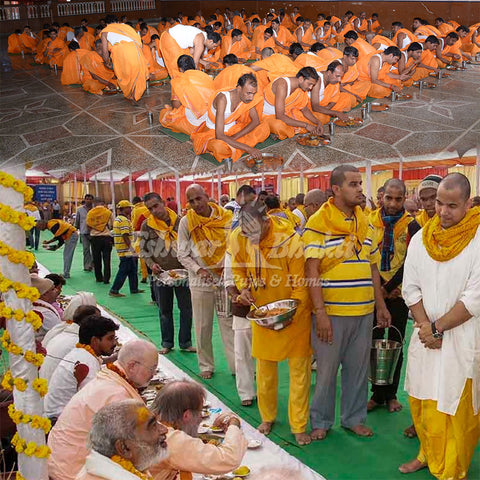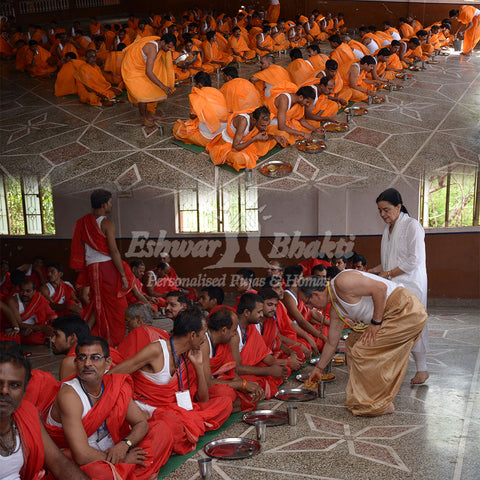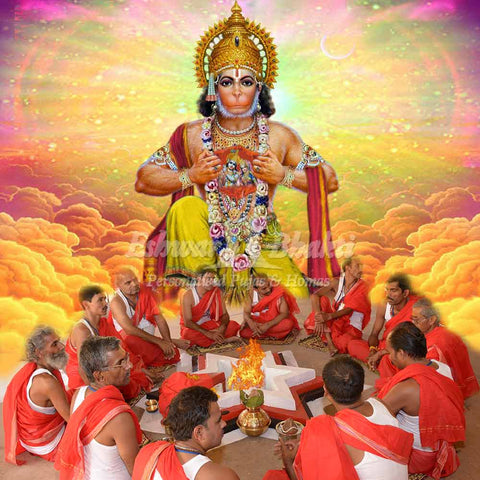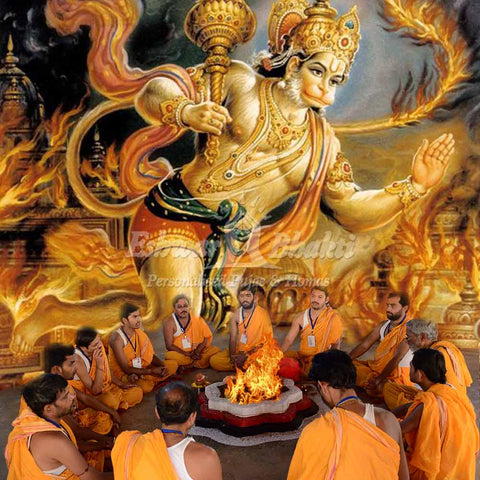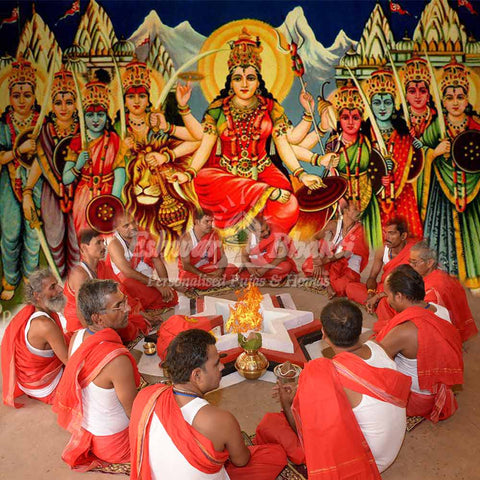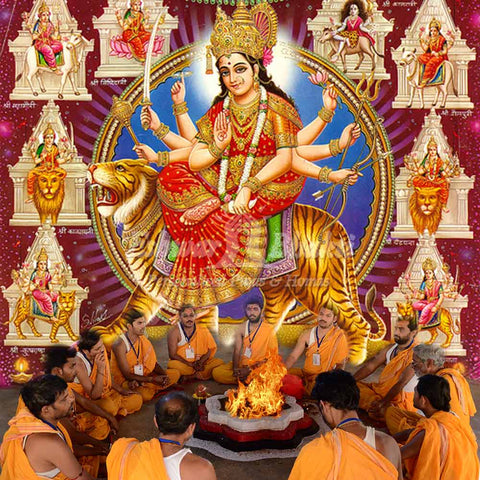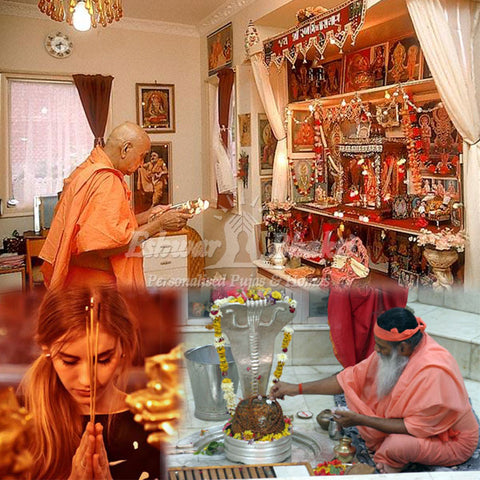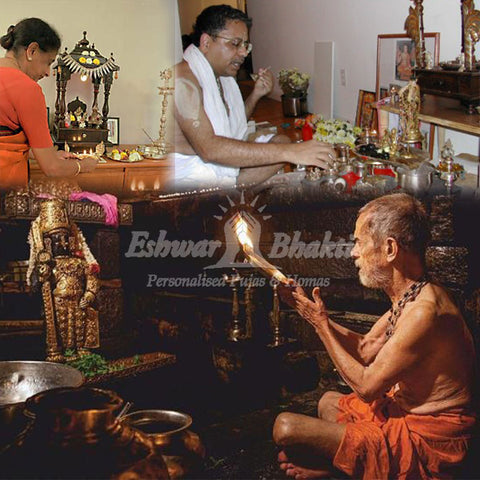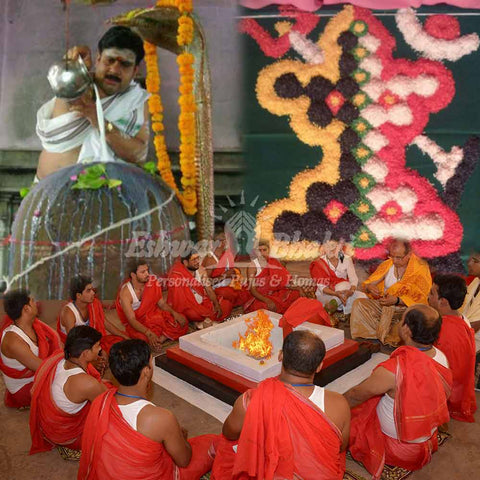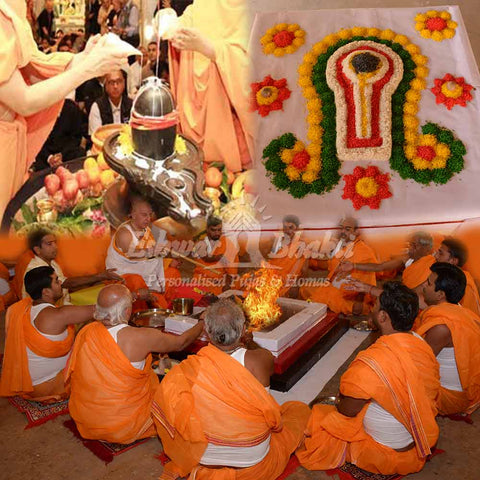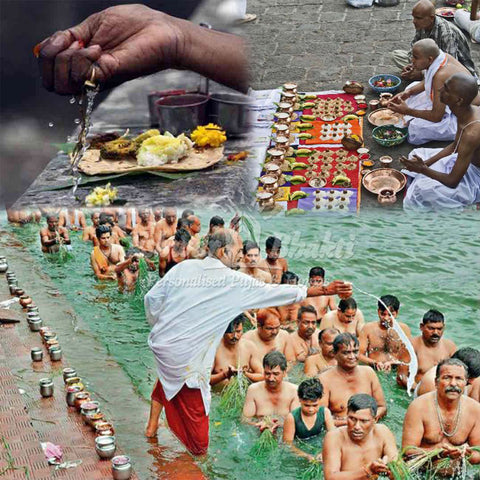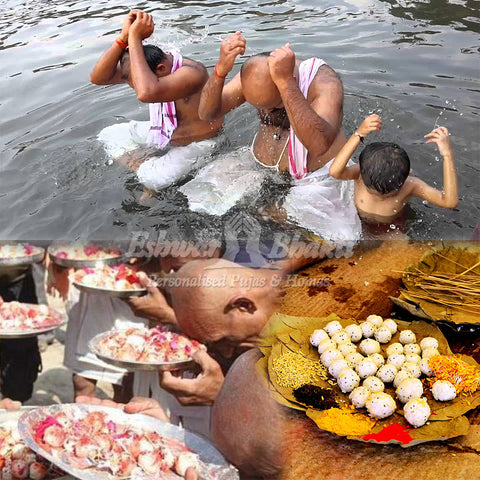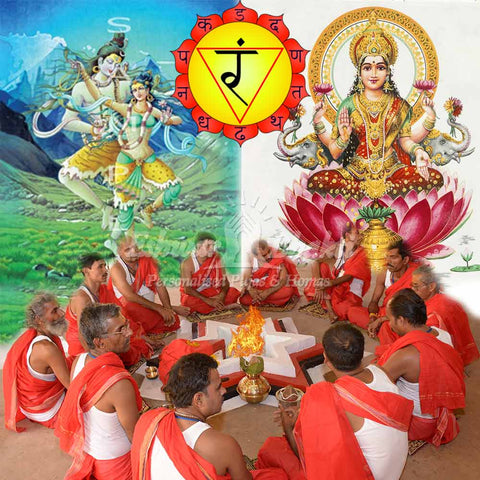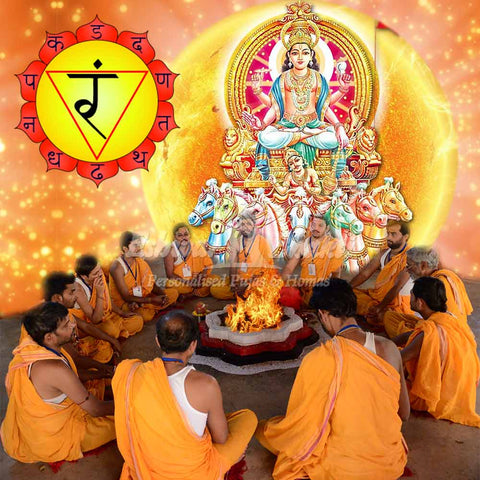Shri Ram Katha
For unending compassion, valor, devotion, self-control, gain virtues
Shri Ram Katha is the recitation of the life story of Lord Rama. Ram is ras - enjoyment/energy; love is also an enjoyment; and for Tulsidasji, even meditation is enjoyment. Katha is ras; the spoken and the listening are both ras.
The Ramayana is an epic poem which was first written from memory (smriti) by sage Valmiki in the Sanskrit language. Many years later, Goswami Tulsidas, born in the 16th century, wrote the Ramcharitamanas. Through Asia, the Ramayana has served not only as poetry, but as the ideal of life and embodiment of principles, as the basis for festivals, plays and rituals, as the foundation for religion, and as an eternal tale of love and duty.
The Ramcharitmanasa is broken up into stanzas called chaupais, passages of which are interposed with dohas or couplets. It is filled with exquisite poetry and consists of seven chapters: Bal Kand, Ayodhya Kand, Aranya Kand, Kiskindha Kand, Sundar Kand, Lanka Kand and Uttar Kand.
The division into 7 kandas is as follows:
1. Bala Kanda (Book of childhood): The origins and childhood of Rama, born to king Dasharatha of Ayodhya and destined to fight demons. Sita's swayamvara and subsequent wedding to rama.
2. Ayodhya Kanda (Book of ayodhya): The preparations for Rama's coronation in the city of Ayodhya, his exile into the forest, and the regency of bharata.
3. Aranya Kanda (Book of the forest): The forest life of Rama with Sita and Lakshmana, his constant companion. The kidnapping of Sita by the demon king Ravana.
4. Kishkindha Kanda (Book of the monkey kingdom): Rama meets Hanuman and helps destroy the monkey people's king, Baali, making Baali's younger brother, Sugriva, king of Kishkindha instead.
5. Sundara Kanda (Book of beauty): Detailed accounts of Hanuman's adventures,including his meeting with Sita. Traditionally read first when reading the ramayana, this book's name derives from the fond name given to Hanuman by his mother.
6. Yuddha Kanda (Book of war): also known as Lanka Kanda, the battle in Lanka between the monkey and the demon armies of Rama and Ravana, respectively. After Ravana is defeated, Sita undergoes the test of fire, completes exile with Rama, and they return to Ayodhya to reign over the ideal state.
7. Uttara Kanda (Last book): Rumors of impurity lead to Sita's banishment, during which she gives birth to and raises Lava and Kusha. Rama and Sita reconcile. The twin boys later ascend the throne of Ayodhya, after which Rama departs from the world.
All these sections cover the different periods of Lord Rama's life, taking us right from his boyhood, through his exile and his life in the forest, to the abduction of Sita, the war which follows in Lanka and finally, what happens after the recovery of his wife. Preceding these seven sections, the story of Lord Shiva has also been narrated in the form of a prologue to Ram's story.
Lord Rama, the hero of the Ramayana, is one of most popular deities worshipped in the Hindu religion. Each year, many devout pilgrims trace their journey through India and Nepal, halting at each of the holy sites along the way. The poem is not seen as just a literary monument, but serves as an integral part of Hinduism, and is held in such reverence that the mere reading or hearing of it, or certain passages of it, is believed to free from sin and bless the reader or listener. Lord Rama is an incarnation (Avatar) of the god Vishnu. The main purpose of this incarnation is to demonstrate the righteous path (dharma) for all living creatures on earth.
Service includes: Puja of Lord Rama and Ram Parivaar, Sankalpa, daily recitation of Ram Katha, Aarti, Pushpanjali.
This puja can be done:
-
With 1 recitation of Shri Ram Katha: 1 recitation of Shri Ram katha would be done. Duration: 24 hours ;
Team members: 3 priests and 5 musicians -
With 108 recitations of Shri Ram Katha: 108 recitations of Shri Ram katha would be done. Duration: 7 days ; Team members: 115 priests and 7 musicians. Please email us at contact@pujayagna.com , expressing your interest.
Make your selection of Puja days from the box above.
Eshwar Bhakti priests will perform your Puja as per the Vedic procedure. Please mention your birth details (name, date, time, and place of birth), & Sankalp (your wish) at checkout. This is an individual Puja (you may book puja only on your name or include your near/dear ones in your puja).
You can book this puja with or without a DVD. An hour-long DVD will have the main elements of your puja: Sankalpa, Abhishek or invocation mantras, presiding deity mantra chants, Homa and Aarti. If you opt for a DVD, we will upload it on a cloud link for you to download and watch online, within a week of your puja completion. If you don't opt for a DVD, we will email few short video clips and photos immediately upon successful completion of your ritual.
Performing your puja ritual with love and utmost care is our motto. We perform only Individual Personalized rituals. No group rituals. Here are the key steps to help you understand the process:
 You add a ritual to your shopping cart, after reading the benefits and based on your concerns.
You add a ritual to your shopping cart, after reading the benefits and based on your concerns.
 At the time of booking your ritual(s), you are asked to provide your "Name, birth details, Sankalpa and instructions" on the shopping cart page. You can also mention your Gotra, Nakshatra and Rashi details there (if you know).
At the time of booking your ritual(s), you are asked to provide your "Name, birth details, Sankalpa and instructions" on the shopping cart page. You can also mention your Gotra, Nakshatra and Rashi details there (if you know).
 Immediately after the receipt of your order, we start identifying the most auspicious date and time to perform the ritual.
Immediately after the receipt of your order, we start identifying the most auspicious date and time to perform the ritual.
 An email is sent to you within 12 hours of order confirmation, which would comprise:
An email is sent to you within 12 hours of order confirmation, which would comprise:
1. Date on which your puja would be performed.
2. Complete timings and duration of your ritual.
3. Sankalpa time: When you can join us and pray for the fulfillment of your wish.
4. Zoom meeting details for taking the Sankalpa.
5. Mantra and meditation instructions to follow at your end.
6. Dietary precautions on the day of your puja.
7. List of some easy to get items, to take the Sankalpa.
 You can also email us your photo, at contact@pujayagna.com, to keep during the performance of your puja (optional).
You can also email us your photo, at contact@pujayagna.com, to keep during the performance of your puja (optional).
 On the scheduled day and time, you can join over Zoom to take your Sankalpa (optional). You will be guided during the call to take the Sankalpa.
On the scheduled day and time, you can join over Zoom to take your Sankalpa (optional). You will be guided during the call to take the Sankalpa.
 Immediately after the successful completion of your ritual, an email is sent with photos/videos of the ritual.
Immediately after the successful completion of your ritual, an email is sent with photos/videos of the ritual.
 In case of rituals lasting over several days, you will receive daily updates over email, WhatsApp or Viber.
In case of rituals lasting over several days, you will receive daily updates over email, WhatsApp or Viber.
Have more queries, read Frequently Asked Questions.




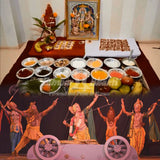
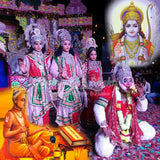

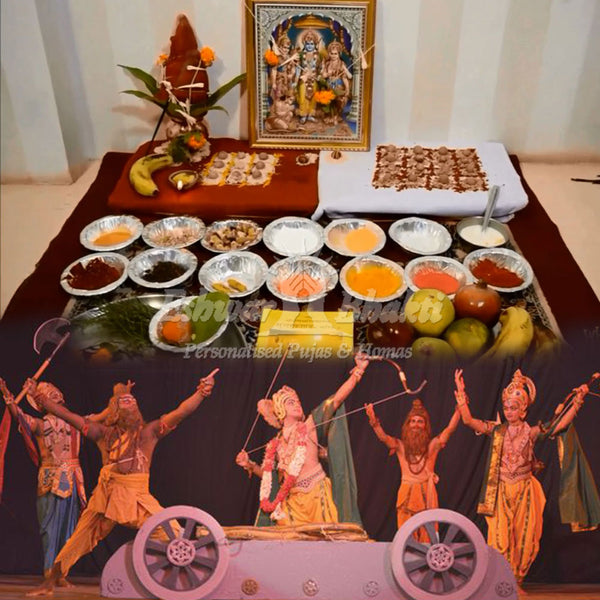





 Related Pujas
Related Pujas 
